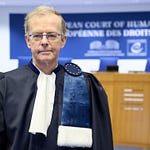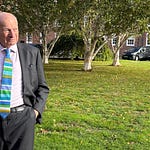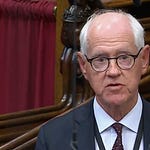This isn’t a political blog so I’m not going to make any tired references to the cover-up being worse than the crime or history repeating itself as farce. I realise that the current threat from the Omicron variant is no laughing matter. But that, of course, is why it is so important for the prime minister and his government to maintain the confidence of the British people.
The leak of a rehearsal on 22 December for the No 10 press conferences that were subsequently abandoned has persuaded most people that there was indeed some sort of party in Downing Street on 18 December, at a time when London was in a tier 3 lockdown. That meant gatherings of two or more people in an indoor space were prohibited, subject to exceptions. Did any of those exceptions apply to the party?
That was what I was asked in a live interview on Radio 4’s PM programme two days ago, on 6 December. You can hear the item by clicking on the audio link at the top of this page.
The story was presented by Evan Davis in a deliberately lighthearted way. That was the programme’s editorial choice but one I thought was entirely appropriate.
How could Downing Street defend itself, Evan wanted to know. The government had a number of options, I replied, and it couldn’t be blamed for not showing its hand at this stage.
The first was that there are exceptions in the regulations for what are called permitted organised gatherings. These cover meetings on the premises of a public body. The working areas of Downing Street must surely come within that definition.
My next suggestion was that the event might have been one of the gatherings necessary for certain purposes that are exempted under the regulations. These include a gathering that is reasonably necessary for work purposes.
Evan appeared unconvinced and asked me for my clincher. This had been suggested earlier by Adam Wagner, the barrister who has made it his job to understand the regulations:
The Public Health (Control of Diseases) Act 1984 is the act of parliament under which all these regulations were made.
Section 73 of the act deals with Crown property. Subsection (4)(d) allows a government department to agree with the local authority that a specified and relevant provision in the act should apply to that property.
I take that to mean that the government department responsible for 10 Downing Street — the Cabinet Office, I suppose — could agree with Westminster City Council that the lockdown restrictions would apply on its premises. Assuming no such agreement had been made — and I would be astounded if it had — then government premises are exempt from the regulations.
One rule for them and another for us? Not really, I told Evan: you can’t expect ministers and officials to run the country from home. I was less willing to defend the suggestion that other government staff were invited to visit No 10 and join the party.
Finally, I explained that, under section 64A of the 1984 act, a prosecutor has six months to bring a prosecution “beginning with the date on which evidence which the prosecutor thinks is sufficient to justify the proceedings comes to the prosecutor's knowledge”. There is an upper limit of three years from the date of the alleged offence.
The barrister Matthew Scott published a detailed blog shortly after my broadcast, which he had clearly been working on for much of the day. He concluded:
If the party was confined to the government rooms and offices in the “official” parts of No 10, it probably did not breach the criminal law, even though it was in flagrant breach of its spirit, as well as of the official advice and guidance, much of it emanating from the prime minister himself.
I think that sums it up rather well.
This analysis reached you free of charge. To make sure you never miss another post, join my free mailing list. For the full service, become a subscriber.
Better still, as the festive season is upon us:













